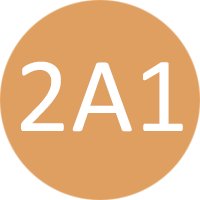Primary legislation is the term used to describe the main laws passed by the legislative bodies of the UK e.g. Acts of the UK Parliament, Scottish Parliament, Welsh Parliament and Northern Ireland Assembly. It also includes Acts passed by historical parliaments, other primary legislation for Northern Ireland and Church of England Measures (legislation for the established church in England passed by the General Synod of the Church of England).
These types of legislation are sometimes referred to as ‘statutes’ and the term ‘the statute book’ refers to the whole of the statute law currently in force.
Bills and Acts are often referred to as Primary legislation or as Statute Law in the UK.
A Bill is proposed law which is introduced into Parliament. Once a bill has been debated, approved by each House of Parliament and has received Royal Assent, it becomes law and is known as an Act. An Act is a Bill that has been approved by both the House of Commons and the House of Lords and been given Royal Assent by the Monarch. An Act may come into force immediately, on a specific future date or in stages.
Secondary legislation (also called ‘subordinate legislation’) is delegated legislation made by a person or body under authority contained in primary legislation. Typically, powers to make secondary legislation may be conferred on ministers, on the Crown, or on public bodies. An Act may delegate power to a government minister to make orders, regulations or rules.
In parliamentary systems of government, primary legislation and secondary legislation (the latter also called delegated legislation or subordinate legislation) are two forms of law, created respectively by the legislative and executive branches of government.
The main types of secondary legislation are Statutory Instruments, Statutory Rules and Orders, Church Instruments.
| PRIMARY LEGISLATION | SECONDARY LEGISLATION | |
| AKA | Statute law | Delegated / Subordinate |
| What is it | An Act of Parliament creates a new law or changes an existing law. | Delegated legislation allows the Government to make changes to the law without needing to push through a completely new Act |
| Forms it can take |
|
|
| Types |
(Covers areas of general interest which effect the whole population – e.g. Education Act)
(Also known as Private Acts and apply to a specific location, group of people or an individual – e.g. Manchester Ship Canal Act) |
|
| Created by government branch | Legislative | Executive |
| Example | Town and Country Planning Act
Planning Act |





